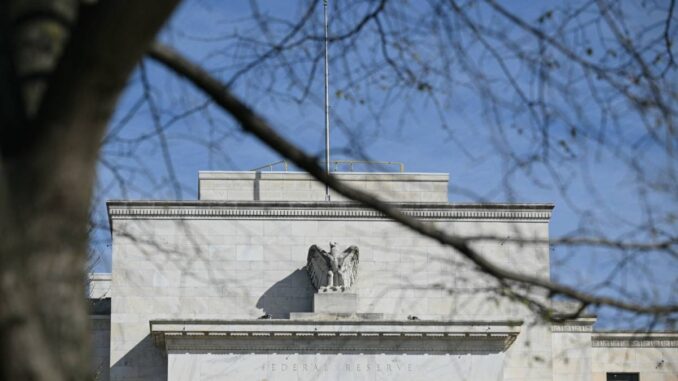
HONG KONG — Asian markets built Friday on the latest global rally after a jumbo US interest rate cut this week, while the yen edged up after the Bank of Japan (BoJ) decided against another hike.
Traders have been put in a bullish mood by the Federal Reserve’s (Fed) decision to go big on its first reduction since the start of the Covid pandemic — opting for 50 basis points instead of 25 — and pledging more would come.
There had been fears the move could signal officials were worried about the economy and were behind the curve in easing policy, but data Thursday showing jobless claims at their lowest since May suggested it was heading for a soft landing, rather than recession.
After a muted initial reaction to the Fed cut, Wall Street bounded higher Thursday, with the S&P 500 and Dow hitting new records and the Nasdaq piling on more than 2 percent.
Asia continued the run, extending the previous day’s advances.
Tokyo jumped more than 1 percent, matching Thursday’s performance, thanks to a weaker yen, while Hong Kong was also more than 1 percent higher, with Sydney, Seoul, Taipei, Mumbai, Bangkok and Manila also enjoying strong buying.
Shanghai was marginally higher but Wellington, Singapore and Jakarta fell.
London, Paris and Frankfurt all fell at the opening.
Gold hovered just shy of the record above $2,600 touched Wednesday.
With the Fed out of the way, attention turned to the Bank of Japan as it wound up its own policy meeting by keeping borrowing costs on hold.
The move had been widely expected after a hike at its previous gathering, but investors will now be poring over the bank’s statement and comments from boss Kazuo Ueda hoping for guidance on its near-term plans.
The BoJ began to move away from its long-running policy of ultralow rates in March — the first increase in 17 years — but a second increase in July sent shockwaves through markets.
The move sparked a surge in the yen as investors unwound their so-called carry trade in which they used the cheap currency to buy higher yielding assets such as stocks.
Bets on more tightening — and a period of cutting by the Fed — helped push the yen this week to less than 140 per dollar, its strongest level since summer.
Friday’s meeting came hours after figures showed the consumer price index (CPI) edged up to 2.8 percent in August, as expected.
Masamichi Adachi, UBS Securities’ chief economist for Japan, said: “We think it is reasonable to expect the next rate hike will be coming soon, which is in line with the consensus view among BoJ watchers.
“October is still possible, but elevated market nervousness and political developments make us think that the risk is more skewed to December than before.”
But Stefan Angrick, senior economist at Moody’s Analytics, said further tightening could weigh on the economy.
“Price pressures will ease going into 2025. Supply shocks that drove the initial pickup in inflation are fading, and the yen is appreciating,” he wrote in a commentary.
“But the implications for monetary policy are limited. The Bank of Japan used to emphasize the importance of demand-driven price pressure, but recent CPI (consumer price index) releases show little evidence to suggest demand is playing much of a role in driving prices.


Be the first to comment